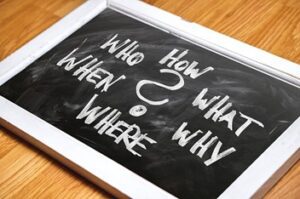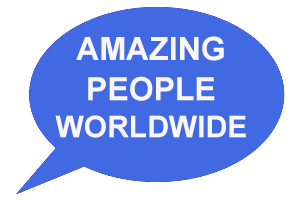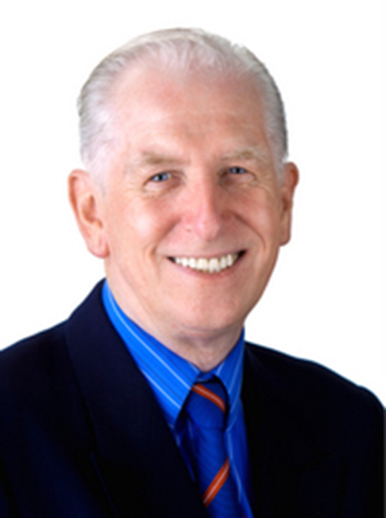The Can Do Language & Amazing Achievers
By Dr Charles Margerison
Psychologist
Introduction
Language education is part of the curriculum in all schools.
In addition, we need to educate students in the language of action. I refer to this as the ‘can do language.’
This is the ability to think, write and speak in ways that lead to positive personal action, and to support the action of others.
Language of Amazing Achievers
My research on the lives of over 500 amazing achievers, such as Albert Einstein, Helen Keller, Nelson Mandela, and Marie Curie, shows that they developed their version of the ‘can do’ language.
Mandela said, ‘Everyone can rise above their circumstances and achieve success if they are dedicated to and passionate about what they do.’
Keller wrote; ‘Alone we can do so little; together we can do so much.’
They focused on words and phrases that helped those around them to achieve results.
Here are some examples of amazing people who realised the power of using the ‘can do’ language.
– Walt Disney – ‘If you can dream it, you can do it.’
– Rosa Parkes – ‘Knowing what must be done does away with fear.’
– Theodore Roosevelt – ‘Believe you can do it and you are half way.’

The Psychology of Purpose
In my research on the achievements of amazing people, I noted that outstanding achievers, like Einstein, Curie, Pasteur, and Tubman, focussed on positive proactive language. In particular, one word that re-occurs is purpose – that is linked to religious or political, or commercial action.
Each person who was an outstanding achiever identified one or more important reasons that motivated and guided their work. For Thomas Barnardo, it was creating places where homeless children could safely live. For Florence Nightingale, it was to provide those who were ill with quality nursing care.
Each achiever defined their purpose in different ways. For example, Dr Louis Pasteur’s main purpose was to find a cure for disease. Harriet Tubman’s experience as a slave led her to the purpose of fighting for equal civil rights.
Thomas Edison, the outstanding innovator said: ‘My main purpose in life is to make enough money to create more inventions.’
 Mother Theresa who worked to help those in poverty indicated: ‘We must know we have been created for greater things, not just to be a number in the world.’
Mother Theresa who worked to help those in poverty indicated: ‘We must know we have been created for greater things, not just to be a number in the world.’
President Abraham Lincoln, while fighting to abolish slavery and maintain the USA union, stated : ‘Nothing will divert me from my purpose.’
These people had the ‘can do spirit’ and ‘can do attitude.’ Their action reflected their ‘can do’ language.
Students can learn the ‘can do language’ and this will help them throughout their life.
Can Do Words and Phrases
Amazing achievers have a pattern. They convert negatives into positives. Rather than let doubts destroy their ideas, they focus on words and phrases to raise energy levels. By doing so, they increase their probability of success.
In our work with both students and career professionals, I have introduced them to the powerful ‘can do’ words and phrases that encourage and motivate.
In particular, questions can have more influence than statements.
 Open questions are powerful ways of raising ‘can do constructive thinking.’ For example, in a team meeting, encourage participants by asking questions such as:
Open questions are powerful ways of raising ‘can do constructive thinking.’ For example, in a team meeting, encourage participants by asking questions such as:
- How can you test your idea?
- What is the timetable and what are the costs involved?’
- What issues do you need to assess in order to move forward?
These questions help people think through the action that they need to take. In addition, it is important that team members develop their own personal proactive language to convert their purpose into performance. You can assess a person’s commitment to action if they use these words at the start of a sentence:
- I plan to ……
- I will produce…….
- I am going to ….
Equally, it is important to have the ‘can do’ language of cooperation. To what extent do your team members use positive phrases such as:
- I can help ….
- I will support you …
- I suggest you ….
Helping others to develop their ‘can do spirit’ and abilities is a great skill. Watch how those skilled in the ‘can do’ language support others in meetings. They focus more on praise than criticism. They help others perceive ways and means around difficulties. They raise people’s perception of what is possible.
Questions are an excellent way of helping others develop their thoughts and confidence. These are examples which can be used.
‘What have you learned from doing the project that can help you improve next time?
‘How can we, as a group, test the ideas that have been put forward.’
It is important to capture the positive ideas that emerge, and then agree a timetable for action.
Can Do Conversations
As a practical application, keep a record of the language used in your next meeting with colleagues. Keep a count of the times people encourage each other, in contrast to the number of times people close down discussions with criticism and doubt.
Shakespeare wrote: ‘Doubt is a thief that often makes us fear to tread where we might have won.’
Where you see that happening in a group, try to raise the optimism level by asking everyone to gather more information on the doubts expressed.
In contrast, if people are expressing many positive ideas ask them about ways in which they can be tested before decisions are made.
Applications
In our work with schools, we are encouraging students to develop life skills in ‘can do’ thinking and behaviours. We have provided students with educational resources via www.amazingpeopleschools.com
 These are based on a number of key words of character, such as courage, creativity, resilience, optimism, adaptability. These words are the foundation for students to develop their own ‘can do’ language applications with regard to their hobbies and interests. My grandson has taken the key word of ‘exploration’ and has made a backpacker tour of Cambodia, Laos, Vietnam, Indonesia, and Malaysia with money he earned from doing temporary jobs.
These are based on a number of key words of character, such as courage, creativity, resilience, optimism, adaptability. These words are the foundation for students to develop their own ‘can do’ language applications with regard to their hobbies and interests. My grandson has taken the key word of ‘exploration’ and has made a backpacker tour of Cambodia, Laos, Vietnam, Indonesia, and Malaysia with money he earned from doing temporary jobs.
We encourage students to choose a ‘can do’ word and develop an action plan. This leads them to gain experience outside of their school. Some choose to be volunteers. Other students join organizations that enable them to translate their ‘can do’ intentions into action.
Summary
The research on the lives of amazing people shows they identified an important purpose. They also developed a positive ‘can do’ language that guided their efforts and motivated others.
We are encouraging students at all levels to develop their own ‘can do’ language, and to use it to support others.
The ‘can do’ language can be learned like any other language and is an important life skill.
References:
- C J Margerison – If Only I Had Said – Mercury Books.
- C J Margerison – Purpose to Performance – Kindle Library.
Website – www.amazingpeopleschools.com









